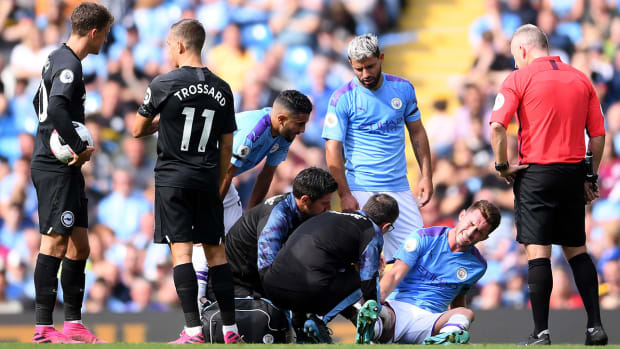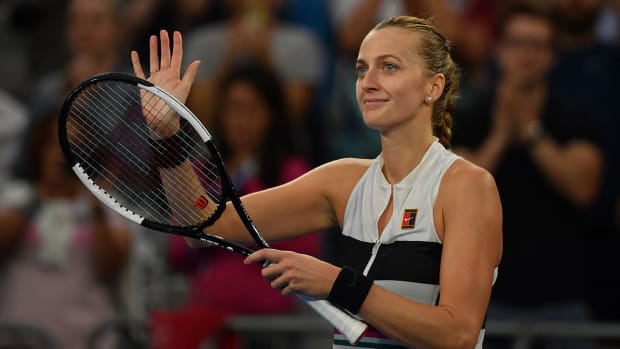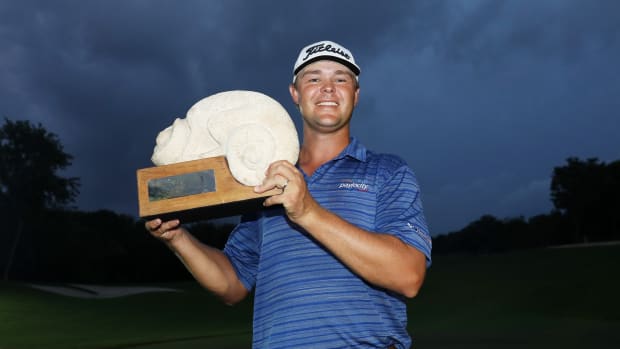IAAF appeals against Russian 'selective' sanctions
MONACO (AP) Track and field's governing body appealed Wednesday to the Court of Arbitration for Sport against the ''selective'' sanctions handed down by Russia in six doping cases.
Valery Borchin, Olga Kaniskina, Sergei Bakulin, Sergei Kirdyapkin, Vladimir Kanaykin and Yulia Zaripova were suspended in January because of anomalies in their biological passport, which tracks an athlete's blood profiles over time, but the Russian anti-doping agency decided against stripping any Olympic medals.
''While the IAAF agrees with RUSADA that there is, in each case, sufficient evidence of an anti-doping rule violation and that there are aggravating circumstances justifying an increased sanction of more than two years, the IAAF disagrees with the selective disqualification of results applied by RUSADA as a consequence of the previous rulings,'' the International Association of Athletics Federations said in a statement.
Borchin, Kaniskina, Bakulin, Kirdyapkin and Kanaykin are among more than two dozen Russian race walkers who have been banned for doping in the past decade. Zaripova won the gold medal in the 3,000-meter steeplechase at the 2012 London Olympics.
In January, bans of three years, two months were handed to Kirdyapkin - the 50-kilometer Olympic champion in London - and Kaniskina, as well as 2011 world champion Bakulin. All three doping cases were backdated to late 2012.
Borchin, an Olympic gold medalist in 2008, was banned for eight years from October 2012 for a second doping offense, while Kanaykin was banned for life for a repeat offense.
The Russian authorities had canceled the results of the six athletes for varying periods dating back in some cases as far as 2009, but exempted certain periods, most notably leaving the medals from the 2012 Olympics untouched.
If the court finds the six athletes should have all results wiped out from the time their blood samples first showed the use of banned substances, Kirdyapkin stands to lose his gold medal from London, promoting Australia's Jared Tallent to first place, while Kaniskina could lose her women's 20-kilometer silver.
The Rusada bans already affected two Russian medals from the 2011 world athletics championships, but now Bakulin faces being stripped of his win in the men's 50K. If that happens, fellow Russian Denis Nizhegorodov stands to inherit the gold medal.
The Russian anti-doping agency banned Zaripova for two years and six months, with her suspension backdated from July 2013. The agency said Zaripova's results would be annulled for parts of 2011 and 2012, dates which include her Olympic victory, though she was not stripped of her gold medal. She now stands to lose her title, which would pass to Tunisia's Habiba Ghribi.
The Russian athletics federation declined to comment on the IAAF's decision until its acting president returns from a business trip on Thursday. Rusada could not be contacted for comment.
When the bans were announced, RUSADA general director Ramil Khabriev said that the periods of the annulled results were chosen for purely scientific reasons.
The IAAF added it is still reviewing the case of Olympic heptathlon bronze medalist Tatyana Chernova, who was given a two-year ban backdated to 2013 after testing positive for the banned steroid oralturinabol when a sample from the 2009 world championships was retested.




